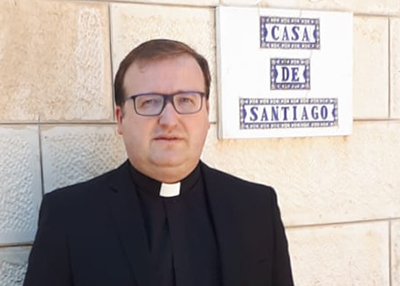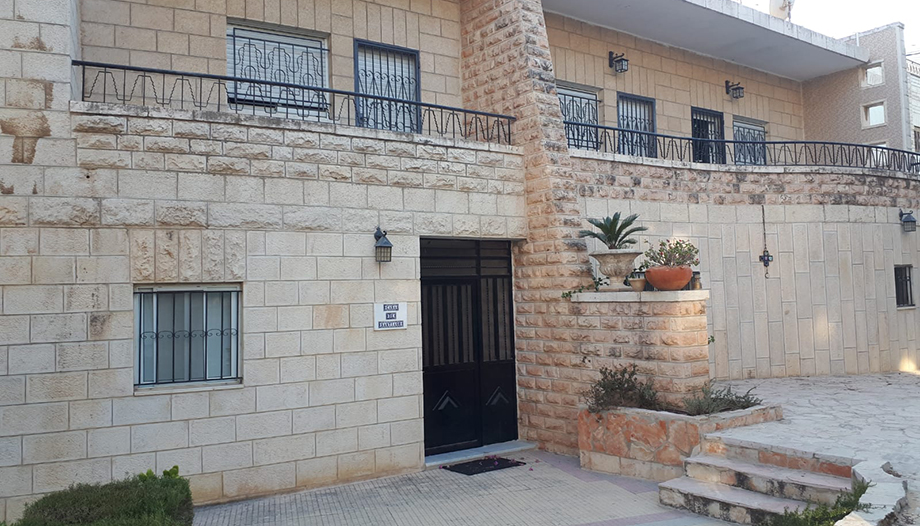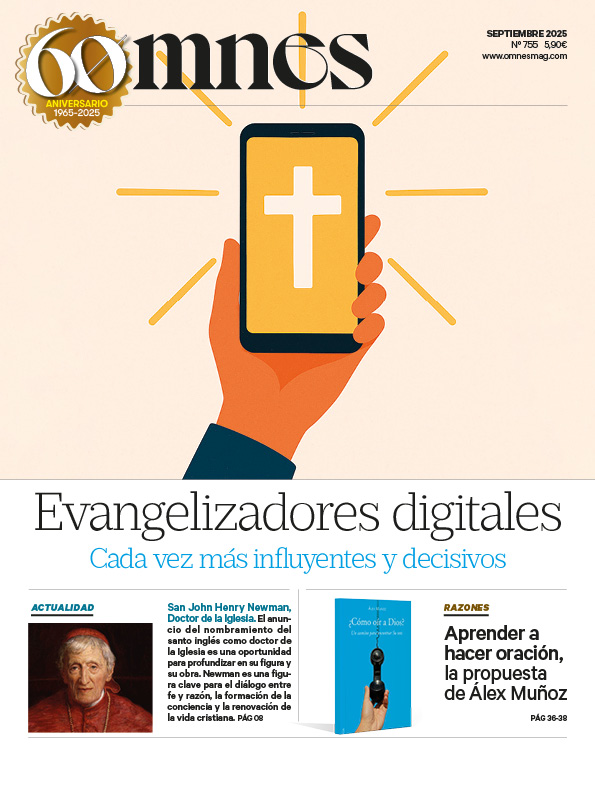What we know today as the Spanish Biblical and Archaeological Institute / Casa de Santiago was born in 1955 on the initiative of Maximino Romero de Lema, then rector of the Spanish Church of Montserrat in Rome, who together with a group of priests studying Sacred Scripture decided to found this center of the Spanish Church in the Holy Land, with the aim of promoting biblical and archaeological research. Thus was born this religious and academic institution, under the episcopal authority of the Latin Patriarch of Jerusalem, under the intellectual patronage of L'Ecole Biblique de Jerusalem, and with the help of the Franciscan Custody and the Consulate General of Spain. A few months ago, the priest Juan Antonio Ruiz Rodrigo assumed the direction of the Spanish Biblical and Archaeological Institute.

An institution that, as he himself points out, "has made an important contribution to biblical studies in Spain. Thus, most of the Spanish experts in biblical exegesis and archaeology have been residents of this House. Pioneering scholars on the Dead Sea manuscripts were members of this Center; and great specialists in this field, editors of the internationally recognized Qumran documents, are linked to our Institute".
More than just a study center
From its foundation until now, its director emphasizes, the Casa de Santiago "has not stopped opening its doors. Today it welcomes not only priests, but also professors specializing in biblical studies and scholars of the Bible and archeology or other disciplines such as Liturgy, whether clerics or laymen, men or women".
Its location also allows those who study or reside at the Casa de Santiago to enter "in direct contact with the specialized biblical academic centers of the city and, in general, with the cultural and religious environment of Israel. Our Center has sought to be, from the beginning, a welcoming home, a meeting place and an environment conducive to study and research among Spanish biblical scholars and archaeologists.
Each year it welcomes priests from different Spanish dioceses, religious and lay people, enrolled at the Pontifical Biblical Institute in Rome, at the Gregorian University or at other Spanish universities, who choose this Center to work on their interesting exegetical studies and to enjoy a stay in the city of Jerusalem".
Vocation for dialogue
The mission of the Casa de Santiago is not reduced to being a simple place of study or residence. This institution "was born with a vocation of dialogue between faith and culture", as Juan Antonio Ruiz Rodrigo points out, "this dialogue is the real challenge facing the Church today. The latter has always been more excluded from the cultural point of view, because, erroneously, the culture of enlightenment has been considered the only spokesperson of scientific and philosophical rationality. But this means forgetting the irreplaceable role of the Church in the progress of human thought for two millennia".

In this line, Ruiz Rodrigo continues, "Christianity is the religion of the Logos, that is, of the Word in the sense of the reasonableness of God and, therefore, the reasonableness of all reality. God is also Logos, that is, Word that founds reality with meaning, and Word that seeks and offers himself to man for dialogue. The Bible in particular has been a fruitful field of this dialogue between faith and culture, because the study of the Bible requires linguistic, historical, archaeological, hermeneutical, literary, etc. knowledge. The Church has always rejected a fundamentalist, irrational reading and has promoted the scientific study of the texts of Scripture from the beginning (like Origen and St. Jerome), because if the Bible is the Word of God in human words, the two poles: divine and human, need to be studied in depth, each according to its own methods, in a fruitful dialogue".
Stepping on the Land of Jesus
Evidently, the panorama of study changes completely when we speak of research in the very land where the events took place. Not surprisingly, the current director of the Casa de Santiago emphasizes that it is "enormously enriching to be able to study and teach Sacred Scripture in the Holy Land. Only here can one find the colors, the landscapes, the perfumes, the climatic and geographical differences that run through the extensive pages of the Bible. Moreover, the study of the Bible in Jerusalem also has other advantages: it is impressive to investigate the Jewish festivals here, where certain traditions have been preserved for thousands of years and are very present in the Holy Scriptures. Understanding Semitic culture is much easier here, immersed as we are in this sea of Semitic peoples. Jerusalem offers the possibility of confronting the cultural world of contemporary Judaism, with its biblical exegesis, in the very places where it is elaborated".
A punished land
Juan Antonio Ruiz Rodrigo lives day by day the tensions that plague this area of the Middle East, one of the most punished by the continuous conflicts between Israelis and Palestinians and that, nevertheless, has one of its economic pillars in tourism, especially Christian religious tourism.
The pandemic, which is now practically under control in the area, has been a serious problem for this sector and the Spanish Biblical and Archaeological Institute has not been unaffected by the consequences of Covid19: "the current health situation prevents the arrival of teachers and students to the specialized academic centers to carry out their biblical and archaeological projects", emphasizes Ruiz Rodrigo, "however, despite the difficulty of this situation, we have tried to live this time with hope, trying to create new activities that can be carried out in our Institution".
To this must be added the tensions experienced in recent weeks in the area. However, as Ruiz Rodrigo points out, "after so many years of disagreements and rivers of blood, of accumulated hatred and the development of events engrossed in numerous political and economic interests, it is worthwhile to continue fighting for a stable peace in the Holy Land, which will allow the development of its culture, its peoples and its people. I am convinced that the Church's goal is to seek peace, especially here in the Holy Land.
The director of Casa de Santiago is very clear that the institutions of the Church present in the land of Jesus "must work for peace, and invite others to strengthen the bonds of fraternity. Thus, any word or gesture that leads to hatred or confrontation will not be a good word and will not help this peace process. Therefore, our duty is to work for reconciliation in the Middle East, and this can only be favored by dialogue, without positions that lead to confrontation".
Christ has lived a history and a culture, has assumed a certain geography, has set foot on a specific territory, which is that of the Holy Land.
Juan Antonio Ruiz Rodrigo. IEBA Director
Pilgrims in the footsteps of Christ
Visiting the same places where the historical events of Salvation took place is a before and after for any Christian who visits the Holy Land. In this sense, the director of the Spanish Biblical and Archaeological Institute is convinced that "it is a unique journey for any Christian, because it is the place of the Incarnation of God. If the Bible presents us with a history of salvation, the Holy Land is the geography of salvation, because that history has its concrete reference in these wastelands and deserts, in the nooks and crannies of this Holy Land, so often wounded. Without the reference to the Holy Land, the very promise of God to Abraham is not conceivable. The Holy Land gives concreteness to the Word of God, allowing it a form of incarnation, even before the Word of God became flesh in Jesus of Nazareth. Christ has also lived a history and a culture, has assumed a certain geography, has set foot on a specific territory, which is that of the Holy Land."







